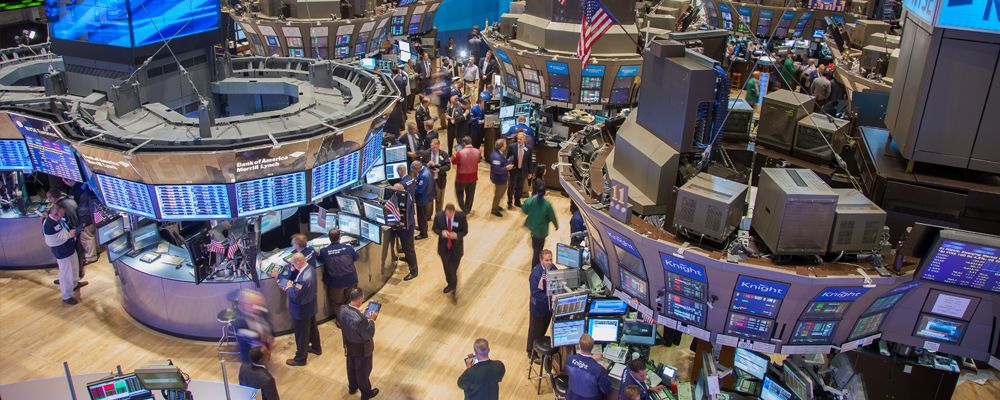Have we found a floor?
- Tuesday, March 24, 2020
 In the past few weeks, we have witnessed the most dramatic loss of wealth and liberty that the world can recall in peacetime. The Dow Jones Industrial Average has fallen by 32.3% and millions of people throughout the world are in self isolation or official lockdown. This is unprecedented.
In the past few weeks, we have witnessed the most dramatic loss of wealth and liberty that the world can recall in peacetime. The Dow Jones Industrial Average has fallen by 32.3% and millions of people throughout the world are in self isolation or official lockdown. This is unprecedented.
It is now expected that the world will enter a recession and it will be the decisive and massive action taken by central banks and governments that will help limit the impact. The swift action of the Fed is likely to have helped avoid a depression.
The massive flood of liquidity and business and household support at the end of last week was expected to have put a floor to recent stock market falls. However, markets fell again yesterday on the basis that agreement over the US fiscal package broke down on Sunday as the Republican bill was rejected by the Senate Democrats. The contentious points are mainly around the size of the large corporate bailout provision. Another vote on the package was scheduled for yesterday.
The US fiscal package now totals an eyewatering $2tn including a government handout of $3000 for a family of four. Markets began to price this in at the end of last week so the removal of this fiscal punch bowl would be a hit for sentiment and global indices. That said, we expect both sides of Congress will be eager to get something done, particularly as it will be politically very dangerous to be perceived as restricting aid to America during an election year. The market is very impatient at the moment. The news that Germany is expected to unveil a €350bn coronavirus support package is also a positive for markets particularly given the nation’s previous reticence around moving away from a balanced budget.
These promised packages need to start being implemented for stock markets to find a floor. This may not happen until investors are sure that governments have fully and genuinely underwritten the entire economic system, which is far harder than bailing out the banks in 2008/09 and fraught with complication. Until then there could be further falls in markets but unlikely to be at the rates we have seen.
The way that this looks to be playing out is that there will be bail out for all industry sectors. The recovery will now be government induced with a hope that world demand will swiftly bounce back. The long-term consequences will depend upon how long the economic inactivity through lockdowns goes on and the extent of government bail outs.
The fundamental valuation of a business is based upon expected future earnings. The level of economic inactivity has forced heavy revaluation with leading indices like the S&P 500, FTSE All Share and Eurostoxx 50 now pricing companies as if they were to endure a complete collapse of earnings and dividends for the next 10 to 15 years. That is unlikely even from where we are now. The FTSE 250 has fallen to a point whereby the average dividend yield is 5.6%. This was the peak yield for the past two recessions. Both can be seen as a buying opportunity.
A recent Bank of America survey of global fund managers showed that they had sold off equities at the fastest rate on record. This in itself does not mean we are at the bottom but that all we currently know is priced in.
Bond yields have risen sharply and bond prices fallen as a consequence of investors seeking the safety of US$ and wondering who will pick up the increase in extra borrowing. This inevitably will be central banks who will print money to keep yields capped and bond prices stable. In the long run inflation will be a consequence of this extra loose monetary policy but at the moment that is the last of their concerns.
Late March 2020 may become the best opportunity to buy cheap stock. Analysts are seeing value in the wreckage, but we remain cautious as we have some weeks to go before we witness the full impact of Coronavirus in the UK and US. In some respect markets do not need any good news but just need the news to stop getting worse. Today’s lift in markets after last nights lockdown announcement was very welcome.
The Dow Jones Index fell 33.84% in 2008 after the financial crisis. It fell 33.47% due to the Spanish flu in 1917 and has lost 32.81% due to Coronavirus. Markets have priced in all that we know and that massive government aid and stimulus is about to begin that will underpin business. Whether it is enough we will have to wait to see.

Chris Davies
Chartered Financial AdviserChris is a Chartered Independent Financial Adviser and leads the investment team.
About Estate Capital
Financial Services
Our Contacts
7 Uplands Crescent,
Swansea, South Wales,
SA2 0PA.
Tel: 01792 477763
